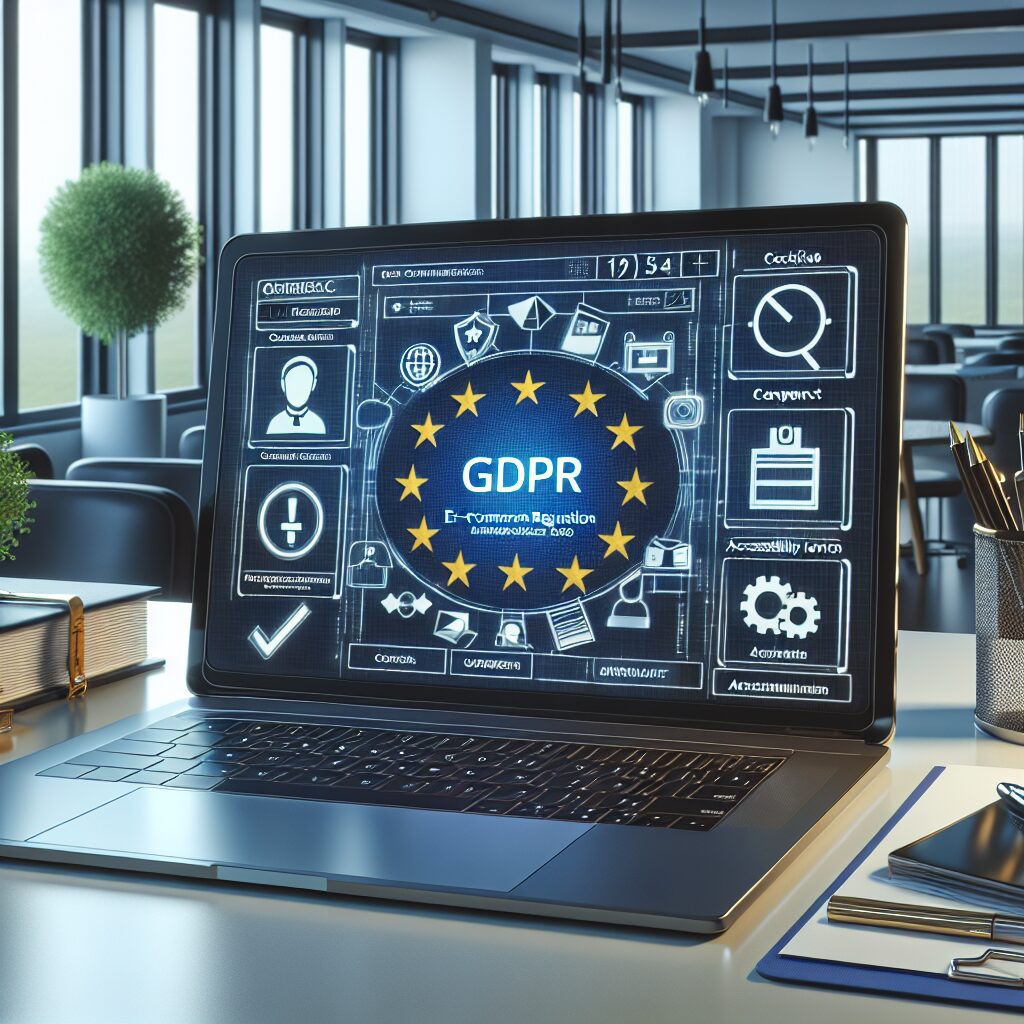About eldris
At Eldris, we automate SEO, multilingual site expansion, and EU compliance for brands scaling across Europe. Our AI-powered platform handles everything from content publishing to regulatory docs—so you don’t have to.
In This Article
- Alternative legal service providers offer cost-effective EU compliance solutions without law firm overheads.
- ALSPs leverage technology, AI, and expert consultants for faster, scalable legal operations.
- They excel in GDPR, AML, and cross-jurisdictional reporting requirements across Europe.
- Case studies prove ALSPs can deliver better compliance outcomes at lower costs.
- Look for flexible, integrated, multilingual tools with real-time reporting when choosing a provider.
- Use best practices by aligning ALSP function with in-house oversight for optimal efficiency.
- ALSPs are not a compromise but a competitive alternative to traditional legal firms in the EU.
- Tailor your engagement and provider selection based on regulatory exposure and operational priorities.
- Investing in smart legal service alternatives could future-proof your EU expansion strategies.
- Explore leading technology providers and consultants to position your business for compliant growth.
Understanding EU Legal Compliance Requirements
The Challenge of Regulatory Complexity Across Europe
The European Union’s legal framework consists of directives and regulations that cover everything from GDPR and anti-money laundering (AML) protocols to environmental and labour laws. Each EU member state has its own implementation mechanisms, making compliance across multiple jurisdictions a daunting task. Failure to adhere to these standards can result in steep penalties, litigation, or restrictions on market participation. Businesses operating across borders must, therefore, navigate a web of overlapping national and EU-wide rules. This is where alternative legal service providers offer a compelling solution. By combining deep regional expertise with tech-powered workflows, these service providers ensure a consistent and scalable approach to compliance.

Why Businesses Are Seeking Legal Alternatives in the EU
Cost, Speed, and Scalability Concerns
Traditional law firms are known for their expertise, but they often come with sky-high fees and slower turnaround times. This model is particularly ill-suited for fast-growing businesses and startups, especially those dealing with multiple regulatory bodies across EU nations. Moreover, newer entrants in digital commerce or fintech must adapt quickly, lacking the luxury of time-consuming legal consultations. By contrast, alternative legal service providers offer fixed-rate packages, streamlined processes, and fast reporting — without sacrificing quality. Leveraging digital tools and legal automation, these providers deliver compliance services at a fraction of the cost. The shift towards ALSPs is not just a trend but a strategic move to ensure legal operations are nimble, scalable, and prepared for evolving regulatory landscapes.
“With ALSPs, we’ve cut our compliance spending by 40% without increasing risk – an absolute game changer for EU expansion.” – CFO, SaaS B2B startup
What Are Alternative Legal Service Providers (ALSPs)?
Alternative legal service providers (ALSPs) are non-traditional legal entities that offer specialised legal and compliance services outside of the standard law firm model. These providers may focus on document review, contractual audits, regulatory compliance, or legal process outsourcing (LPO). They employ legal professionals, consultants, technologists, and sometimes AI platforms to deliver their services. Often, ALSPs are structured more like consultancy firms than legal partnerships. Their flexibility and modular offerings make them exceptionally well-suited to meet the needs of businesses navigating complex EU compliance obligations. Many ALSPs also integrate with in-house legal teams, enhancing internal capabilities while avoiding the overhead of expanding internal staff or relying solely on expensive external counsel.
Benefits of ALSPs for EU Compliance Management
ALSPs offer a multitude of advantages when applied to the diverse regulatory requirements found across the European Union. First and foremost, they help to substantially reduce compliance-related legal costs through automation and offshoring. Secondly, their expertise in sector-specific legislation — from financial services to healthcare and data protection — ensures businesses stay aligned with both EU-wide mandates and local country nuances. Additionally, they offer rapid deployment of resources, often integrating seamlessly with corporate workflows in legal and operations departments. The real-time nature of their reporting tools helps firms remain agile, and many ALSPs offer continuous monitoring. This proactive approach prevents minor regulatory breaches from escalating into major legal issues. Importantly, most ALSPs are plug-and-play with existing systems, offering APIs and dashboard interfaces tailored to EU compliance metrics.
Top Legal Tech Platforms Helping EU Expansion
Several technology-driven ALSPs have risen to prominence in recent years. Platforms such as Elevate Services, Consilio, Axiom, and UnitedLex have built substantial client bases in the EU. These tools utilise advanced workflow management, AI-based contract analysis, and automated compliance checklists tailored to client industries. For instance, Axiom’s proprietary database of EU directives enables predictive compliance assessments based on changes in law. Meanwhile, Elevate combines legal analytics and consulting in a single interface. Startups and medium-sized enterprises particularly benefit from these platforms’ agility. They often deliver results faster than traditional legal operations, thanks to integrated talent marketplaces and decentralised staffing. By plugging into these platforms, firms looking to expand across European markets can meet cross-border legal requirements without the traditional law firm bottlenecks.
Dedicated EU Compliance Consultants and Partners
For companies requiring a human touch in their compliance efforts, many ALSPs offer access to specialised EU regulatory consultants. These professionals often bring years of experience from trade commissions, national regulatory bodies, or international law practices. Their knowledge complements the automated capabilities of legal tech, ensuring that nuanced or evolving legislation is appropriately interpreted and applied. Consulting engagements through ALSPs also tend to be more flexible than hiring a boutique legal firm. They don’t require long-term retainers and can focus solely on areas such as GDPR audits, environmental compliance, or employment law harmonisation. For example, a Dublin-based SaaS company entering the French market may collaborate with consultants proficient in CNIL (Commission nationale de l’informatique et des libertés) mandates. This precise localisation is invaluable.
AI-Powered Compliance Tools: Capabilities and Use Cases
AI integration in legal compliance is accelerating, with ALSPs at the forefront of this innovation. Natural Language Processing (NLP) tools help identify regulatory risks in policy documents, contracts, and supplier agreements. Robotic Process Automation (RPA) assists in updating compliance records across multiple jurisdictions automatically. For example, AI-driven solutions can scan vast volumes of financial transaction data to detect AML flag patterns according to EU directives. Some ALSPs deploy AI chatbots to answer compliance queries, reducing the workload on legal departments while ensuring consistency. Crucially, these tools help businesses maintain a continuous compliance posture, something traditional manual methods often fail to achieve. As the regulatory environment becomes increasingly dynamic, the predictive abilities of AI systems offer a significant competitive advantage. Businesses should look to invest in such tools to remain proactive rather than reactive.
Comparing ALSPs, In-House Counsel, and Law Firms
Each of these legal service options offers distinct pros and cons. In-house counsel provides deep business insight and strategic alignment but may lack bandwidth or regional expertise, especially as the company expands. Traditional law firms deliver authoritative legal opinions and courtroom representation but at a steep price and often with less flexibility. In contrast, alternative legal service providers offer hybrid advantages. They scale up or down according to business needs, maintain competitive pricing, and excel at regulatory compliance work. However, they may not always offer litigation support or the reputation clout that some events require. Smart organisations are beginning to adopt a mixed approach: internal oversight by in-house legal teams, strategic litigation handled by law firms, and operational compliance and document-heavy work outsourced to ALSPs. This balance delivers cost-efficiency without compromising legal integrity.
Best Practices for Outsourcing EU Regulatory Compliance
Engaging with ALSPs for EU compliance should not be a hasty decision. Begin with a detailed needs assessment. Understand whether your compliance pain points are related to data privacy, money laundering, consumer protection, or pan-European taxation. Select an ALSP with proven competence in your specific domain. References, case studies, and client feedback are important indicators. Seek providers that maintain ISO certifications or legal tech security standards. Clearly define deliverables, benchmarks, and timelines in your engagement letters. Insist on data integration capabilities with your existing systems. Finally, ensure the ALSP has up-to-date knowledge of regulatory changes via dedicated European legal monitoring teams. By planning strategically, you can unlock a responsive, scalable, and cost-effective compliance framework that keeps your organisation ahead of regulatory expectations. Learn more about EU Regulatory Compliance for International Businesses
Key Features to Look for in Compliance Tech Tools
When vetting compliance technologies embedded within ALSP offerings, businesses should prioritise several key attributes. First is real-time reporting dashboards, which offer insight into current regulatory standing across multiple EU offices. Next are multilingual capabilities and jurisdiction-specific templates — essential for coordinating teams across Europe. API readiness is crucial for integrating with HR, finance, or CRM databases. AI-enabled flagging systems should also be evaluated. These tools allow pre-emptive risk identification based on policies or behavioural deviations in business units. Finally, look for collaborative features: digital signatures, e-discoveries, and smart legal portals help streamline coordination among legal stakeholders. ALSPs that provide such robust tooling mark themselves as true partners rather than mere vendors. Read a related article
Real-World Case Studies: Success Without Law Firms
Various European and global enterprises have found remarkable success by pairing with alternative legal service providers. A German mobility startup operating in Spain, Sweden, and France partnered with a UK-based ALSP specialising in GDPR compliance. The result: a compliance error reduction of 70% and zero fines during their first two years of operation. Similarly, a French medtech firm used an AI-powered ALSP to automate their clinical trial harmonisation across Dutch, Belgian, and Italian regulators. Time-to-market improved by 45%. Mid-sized e-commerce entities have also benefited. One Belgian aggregator used UnitedLex to manage cross-border consumer disclosure requirements and saw a 50% drop in customer complaints. These use-cases reveal that you don’t need traditional firms to achieve high-quality outcomes. These examples provide a roadmap for those looking to scale without ballooning legal costs. Explore non-traditional GDPR compliance providers
Conclusion: Choosing the Right Alternative for Your Business
[CONCLUSION_CONTENT]
Great guide on alternative-to-legal-firm-eu-compliance-best-options – Community Feedback
What are alternative options to law firms for EU compliance?
Alternatives to law firms include Alternative Legal Service Providers (ALSPs), legal technology platforms, consultants, and dedicated EU compliance partners who streamline regulatory processes for businesses.
How do ALSPs differ from traditional legal firms in the EU?
ALSPs use technology and flexible service models to deliver cost-effective compliance, contract management, and risk assessment, unlike traditional firms which focus on bespoke legal representation.
Can AI platforms assist with EU regulatory obligations?
Yes, AI-driven compliance platforms automate document generation, translation, and ongoing monitoring—offering scalable ways to manage ever-changing EU regulations effectively.








